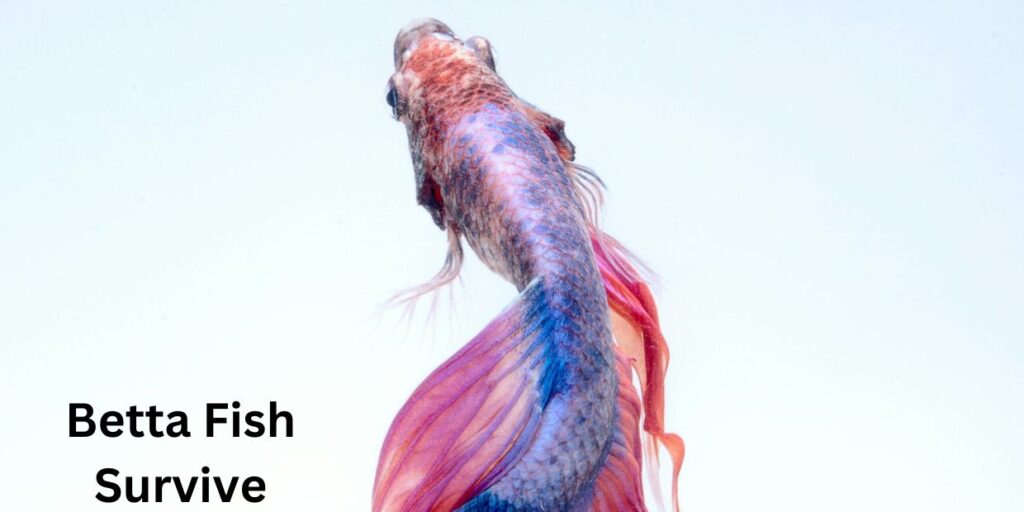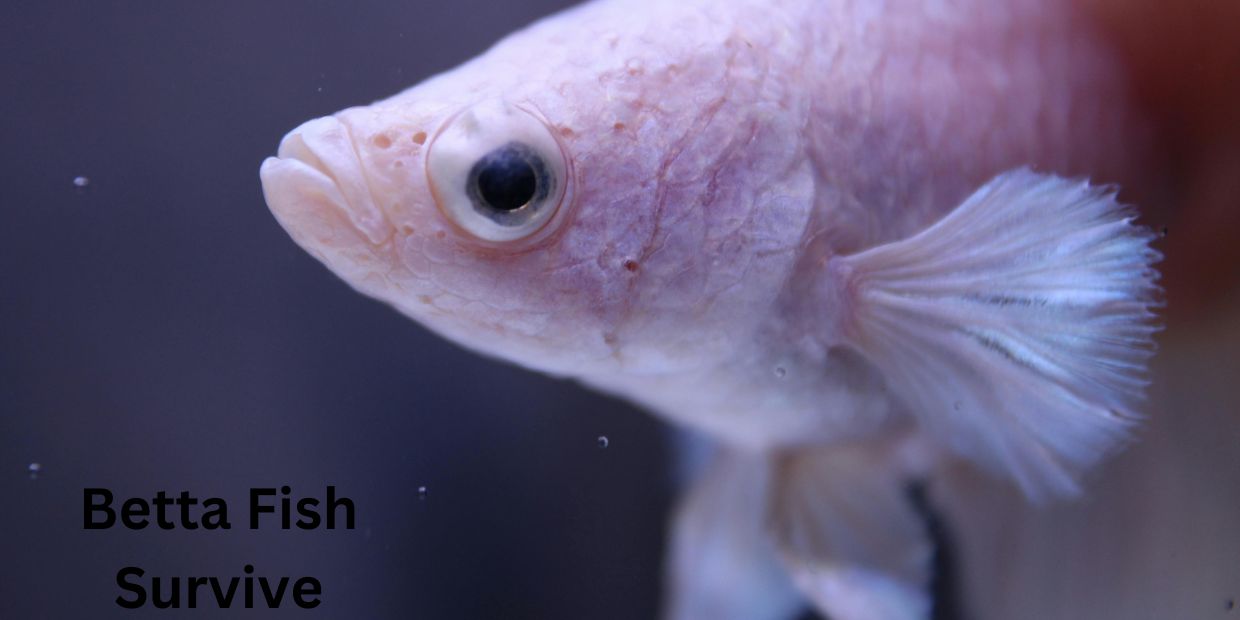Betta fish survive with their iridescent scales and flamboyant fins are a marvel in miniature aquatic worlds. But beyond their visual splendor lies a remarkable resilience. Have you ever wondered how long these vibrant creatures can endure without their customary feast of pellets or bloodworms? Let’s delve into the survival capabilities of betta fish when faced with an absence of sustenance.
A Dive into Betta Biology
In the wild Betta Fish Survive are accustomed to the ebb and flow of food availability. Their natural habitat in the rice paddies and waterways of Southeast Asia is replete with feast and famine. This has endowed them with a hardy constitution allowing them to withstand periods without food.
Understanding Betta Fish Anatomy
Betta fish also known as Siamese fighting fish are distinguished by their vibrant colors and elaborate finnage. Their biology is adapted to the stagnant waters they originate from with a unique respiratory organ called the labyrinth. This allows them to breathe atmospheric air and survive in low-oxygen environments. Their streamlined bodies are built for sudden bursts of speed to catch prey or evade predators showcasing a fascinating blend of beauty and efficiency.

Betta Fish Diet and Digestion
Betta Fish Survive survive natural habitats betta fish are carnivorous preying on insect larvae and small crustaceans. This diet is rich in protein essential for their growth and fin development. In captivity they require a balanced diet that replicates these nutrients often provided through specialized pellet flakes and occasional live or frozen treats. Their digestive system is short reflecting their meat-based diet and requires careful management to prevent overfeeding and related health issues.
Reproduction and Lifecycle of Bettas
The reproductive process of Betta Fish Survive is as unique as their appearance. Males build bubble nests at the water’s surface where females lay their eggs during spawning. The male then fertilizes and guards the eggs displaying a rare paternal instinct among fish. Bettas have a relatively short lifespan typically 2-3 years which is influenced by genetic care and environmental conditions. Understanding their lifecycle is crucial for breeders and enthusiasts aiming to maintain the health and lineage of these captivating creatures.
The Fasting Fortitude of Domestic Bettas
When translated to a domestic setting a healthy Betta Fish Survive can astonishingly survive for up to two weeks on a fasting regimen. This is not to suggest a deliberate deprivation but rather to highlight their inherent hardiness. It is a testament to their wild ancestry where the unpredictability of meals was a common occurrence.
Factors Influencing Fasting Duration
Several factors play a pivotal role in determining the exact duration a Betta Fish Survive can go unfed. These include:
- Aquatic Environment: A well-maintained tank with pristine water conditions can help mitigate the stress of fasting.
- Health History: A betta’s past and present health significantly influences its fasting tolerance.
- Age and Size: Younger and smaller bettas may not have the same reserves as their older larger counterparts.
The Ethical Aspect of Betta Fasting
While Betta Fish Survive can survive without food for a considerable period it is crucial to approach this fact with responsibility. Extended fasting should never be a planned practice but rather an understanding for emergencies.

The Moral Compass in Betta Care
When discussing the survival of Betta Fish Survive without food it is imperative to consider the ethical implications. While bettas can endure periods of fasting this ability should not be exploited. As pet owners we have a moral obligation to ensure the well-being of our aquatic companions. Deliberate fasting can lead to stress weakened immunity and long-term health problems. Therefore it is crucial to maintain regular feeding schedules and only resort to fasting under unavoidable circumstances.
Fasting
Betta Fish Survive ability to survive without food is a survival mechanism evolved from their natural habitat’s unpredictable food sources. In captivity however they rely on us for their nutritional needs. It is unethical to view their fasting tolerance as a convenience for our own irregular care patterns. Instead we should respect their biological needs and provide consistent nourishment which is key to their health and happiness.
The Consequences of Neglect
Neglecting a Betta Fish Survive dietary needs can have dire consequences. Prolonged fasting can lead to muscle wasting organ failure and even death. Ethical pet ownership involves recognizing the signs of hunger and stress in bettas and responding with appropriate care. It is about creating a nurturing environment that mimics their natural ecosystem where they can flourish and display their full behavioral repertoire.
Nourishment Nuances for Betta Vitality
To ensure the vibrancy and vigor of your betta regular feeding with a diet that mirrors their natural predilection for insects and larvae is essential. This not only sustains their physical health but also maintains the luster of their scales and the vitality of their movements.
Conclusion
Betta fish are undeniably resilient and capable of enduring without their daily dollop of diet. However as custodians of these captivating creatures it is our duty to provide consistent care and avoid testing the limits of their survival. After all the goal is to see our bettas not just survive but thrive.
Also Read This : zxtech
How long do betta fish typically live?
Betta fish in a well-maintained aquarium have an average lifespan of 3 to 5 years. However with optimal care some bettas can live up to 10 years.
What is the ideal water temperature for betta fish?
Bettas are tropical fish and thrive in water temperatures between 75 and 80 degrees Fahrenheit.
Can betta fish eat human food?
Human food is not suitable for them and they should be fed food specifically formulated for bettas like pellets or frozen live food.
Do betta fish need a filter in their tank?
While bettas can survive in stagnant water due to their labyrinth organ a filter is beneficial in maintaining clean water and proper water conditions especially in larger tanks.

